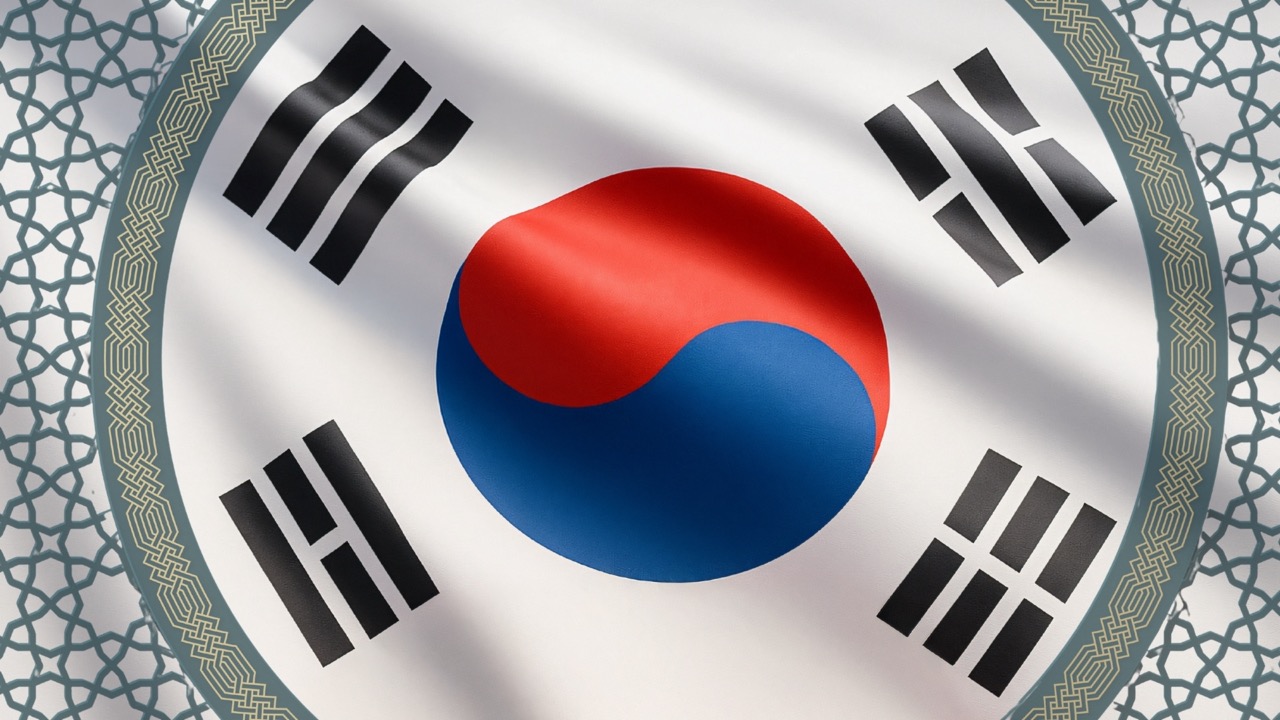The relationship between South Korea and Islam is a fascinating phenomenon that has developed in the modern era while possessing deep historical roots. The spread of Islam in South Korea, one of the Far Eastern countries with a homogeneous social structure, has gone through various historical stages. This article examines the process from the Korean peninsula’s first contact with Islam to the present day within a historical context.
Early Period Contacts: Medieval Trade Routes
The Korean peninsula’s earliest contact with Islamic civilization likely occurred through commercial relations via the Silk Road during the Middle Ages. With the rapid spread of Islam in the 7th and 8th centuries, Muslim merchants reached as far as Central Asia and China. Although indirect commercial connections were established between Korea and the Islamic world during this period, no permanent Islamic presence was formed.
Chinese sources contain records of Arab merchants coming to China during the Tang Dynasty (618-907). Considering Korea’s intensive cultural and commercial relations with China during this period, it is thought that Korean merchants may have also had indirect contact with Muslim traders.
The Mongol Invasion and First Serious Contact (13th Century)
Korea’s earliest and documented contact with Islam occurred during the Mongol invasion in the 13th century. With the expansion of the Mongol Empire, numerous Central Asian Muslim soldiers, merchants, and craftsmen came to the Korean peninsula with the Mongol armies.
During the Goryeo Dynasty period (918-1392), the Mongols invaded Korea repeatedly from 1231 onwards and eventually brought the peninsula under their control. During this process, units consisting of Central Asian Muslims played important roles in the Mongol army. It is known that some Muslim soldiers settled in Korea and married local people.
During this period, Central Asian Muslims called “Hoehoe” (回回) served particularly in military and administrative fields. However, over time this community underwent a process of assimilation and largely lost its Islamic identity.
The Joseon Dynasty and the Long Period of Silence (1392-1910)
With the establishment of the Joseon Dynasty (1392-1910), Korea began to pursue an isolationist policy. Due to the adoption of Neo-Confucianism as the official ideology and isolationist policies known as the “Hermit Kingdom,” contact with Islam was almost completely severed during this period.
During these centuries, there was no organized Muslim community in Korea. Descendants of early Muslim settlers had completely assimilated into Korean society.
The Modern Period: The 20th Century and the Return of Islam
Japanese Occupation Period (1910-1945)
Korea’s modern contact with Islam began in the early 20th century with Japan’s occupation of Korea. During this period, some Korean soldiers and civilians had the opportunity to make contact with Muslim communities in Japan, Manchuria, and China.
The Korean War and the Turkish Brigade (1950-1953)
The roots of modern Islam in South Korea lie in the Korean War of 1950-1953. This war was a critical turning point that enabled Korea to reestablish permanent contact with the Islamic world.
As part of the United Nations forces, the Republic of Turkey sent a brigade consisting of 14,936 soldiers. The Turkish Brigade became known for its heroism in the Korean War and aroused deep respect and admiration among Korean civilians. Turkish soldiers not only fulfilled their military duties but also provided humanitarian aid to the local population.
During this period, Turkish soldiers introduced Islam to the Korean people, and some Koreans were influenced by the lifestyle and values of Muslim soldiers. The first Korean Muslims who made contact with Turkish soldiers emerged during this period.
The First Mosque and Formation of the Muslim Community
In 1955, the “Korea Muslim Association” was established through the initiative of Korean soldiers who had become Muslim during the Korean War. This is considered the beginning of organized Islamic activities in South Korea.
In 1967, with financial support from Pakistan, Saudi Arabia, and other Muslim countries, the Malaysian government built the Korea Islamic Center, symbolizing the friendship between the Korean people and the Muslim world. However, this center did not fully function as a mosque.
In 1976, South Korea’s first official mosque, the Seoul Central Masjid, was opened in the Hannam-dong neighborhood of Seoul. This mosque was built with financial support from Malaysia, Pakistan, Saudi Arabia, and other Islamic countries and played an important role in increasing the visibility of Islam in South Korea.
Economic Development and Middle Eastern Relations (1970s-1980s)
Following the oil crisis in the 1970s, economic relations with Middle Eastern countries intensified. South Korean construction companies undertook major projects in Gulf countries, and thousands of Korean workers worked in this region. During this period, Korea’s economic and cultural ties with the Islamic world strengthened.
During this process, curiosity and interest in Islam increased, and some Koreans embraced Islam. At the same time, workers and students coming to South Korea from Middle Eastern countries also contributed to the growth of the Muslim community.
Islam in South Korea Today
Today, it is estimated that approximately 200,000 Muslims live in South Korea. The vast majority of these are foreign workers, students, and business people. The number of native Korean Muslims is around 30,000-40,000.
There are currently over 15 mosques and numerous prayer rooms in South Korea. Islamic studies programs have been opened at universities, and the Quran has been translated into Korean.
Due to economic relations and diplomatic ties, South Korea continues to develop its relations with the Islamic world. At the same time, cultural exchanges, student exchange programs, and tourism also strengthen the bonds between the two sides.
Conclusion
South Korea’s process of encountering Islam encompasses a long history extending from early commercial contacts to the Mongol invasion, and from there to the reconnected ties in the modern era through the Korean War. Particularly, the Turkish Brigade’s role in the Korean War was a critical turning point in the establishment of Islam in modern South Korea.
Today, Islam continues to exist in South Korea as a minority religion and contributes to the country’s multicultural structure. Economic and diplomatic relations indicate that these ties will strengthen further in the future.


